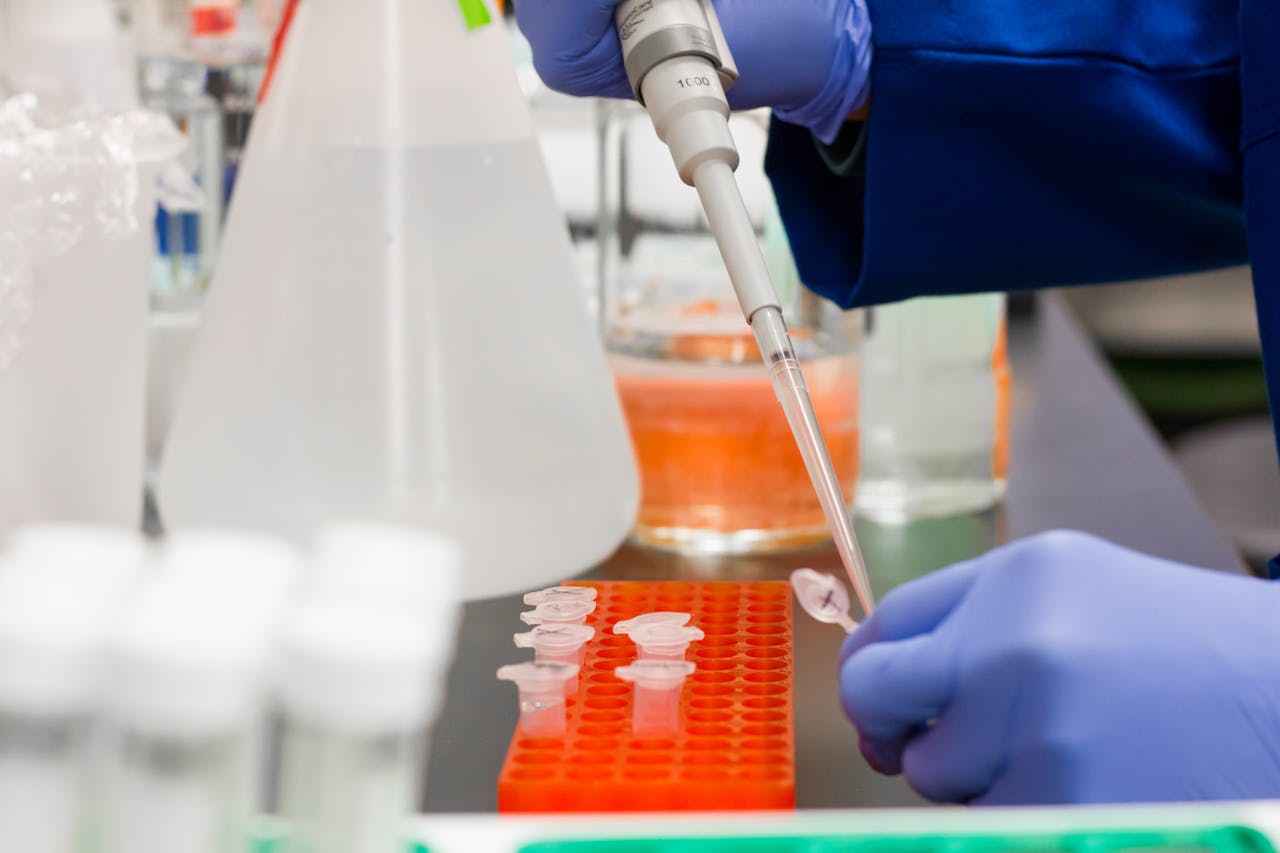Biochemistry opens doors to a wide range of exciting careers that combine biology, chemistry, and technology to solve real-world problems. Its applications are not limited to labs or hospitals. Biochemistry influences our everyday lives, from nutrition and hygiene to energy and agriculture. From researching disease mechanisms to developing life-saving therapies, biochemists play a crucial role in advancing science and improving lives. Whether you aim to work in healthcare, pharmaceuticals, or biotechnology, a career in biochemistry offers versatility, innovation, and impact.
What Is Biochemistry?
Biochemistry is the study of chemical processes and substances within living organisms. It bridges the disciplines of biology and chemistry to understand how molecular structures and reactions sustain life.
Biochemists explore essential biological processes like metabolism, gene expression, and cell communication. Their research helps drive advancements in medicine, agriculture, and environmental science.
Students pursuing a degree in biomedical science often build a strong foundation in biochemistry, preparing them for diverse scientific and healthcare careers.
Core Concepts and Skills for Biochemistry Careers
A successful career in biochemistry requires expertise in several core areas:
- Biomolecular structure and function: Understanding the properties and interactions of proteins, DNA, and other biomolecules.
- Metabolic pathways: Studying how cells transform energy and matter.
- Genetic regulation: Exploring how genes control biological functions.
- Laboratory techniques: Mastery of methods like chromatography, spectroscopy, electrophoresis, and molecular cloning.
- Data analysis and interpretation: Handling complex datasets and using bioinformatics tools.
Graduates with a biomedical science degree in Malaysia are equipped with the laboratory and analytical skills required to excel in these areas.
Career Pathways in Biochemistry
Biochemistry graduates have access to a variety of career options across different sectors:
Research Scientist
Research scientists investigate biological processes to expand scientific knowledge or develop new medical treatments. They may work in universities, government agencies, or private research organisations.
Clinical Biochemist
Clinical biochemists analyse blood, urine, and tissue samples to diagnose diseases and monitor treatments. They typically work in hospital laboratories or diagnostic centres.
Pharmaceutical Scientist
Pharmaceutical scientists research and develop new medications. They study how drugs interact with biological systems to ensure effectiveness and safety.
Biotechnologist
Biotechnologists apply biological processes to create products such as vaccines, biofuels, and genetically modified crops. They work in industries ranging from healthcare to agriculture.
Forensic Scientist
Forensic scientists use biochemical techniques to analyse physical evidence from crime scenes. They help solve crimes by identifying substances like drugs, toxins, or DNA.
Environmental Scientist
Environmental scientists study the impact of human activity on ecosystems. Biochemists in this field analyse pollutants and develop strategies for environmental protection.
Specialisations Within Biochemistry Careers
Many biochemists choose to specialise in specific fields, such as:
- Medical biochemistry: Focused on understanding diseases at the molecular level and developing diagnostics or therapies.
- Molecular biology: Studying the genetic and molecular basis of biological activity.
- Structural biology: Investigating the 3D structures of biological molecules.
- Enzymology: Understanding how enzymes catalyse biological reactions.
A degree in biomedical science provides the academic background necessary to pursue these specialisations and advance in professional or academic settings.

Essential Knowledge and Professional Skills
Biochemists must cultivate a strong combination of technical knowledge and soft skills, including:
Laboratory Expertise
Hands-on experience with advanced laboratory equipment and techniques is critical for conducting experiments and validating results.
Analytical Thinking
The ability to critically analyse experimental data and troubleshoot problems is essential for research and innovation.
Communication and Teamwork
Biochemists often work in multidisciplinary teams. Strong communication skills are necessary for presenting findings, writing reports, and collaborating with colleagues.
Lifelong Learning
Continuous professional development ensures that biochemists stay updated with evolving technologies and scientific discoveries.
Professionalism and Ethical Considerations
Ethical conduct is paramount in all biochemistry careers. Professionals must:
- Maintain data integrity: Ensure that research and reporting are honest and transparent.
- Respect confidentiality: Handle patient data and sensitive information responsibly.
- Adhere to regulations: Comply with safety, environmental, and ethical standards.
Ethical principles are integrated into education for students enrolled in a degree in biomedical science, preparing them for responsible scientific practice.
Additional Opportunities for Biochemistry Graduates
In addition to traditional scientific roles, biochemistry graduates can pursue careers in:
- Science communication: Writing and disseminating scientific information to the public.
- Regulatory affairs: Ensuring compliance with laws governing healthcare products.
- Patent law: Advising on intellectual property related to biotechnology inventions.
Career flexibility allows graduates to explore diverse industries and contribute to scientific, regulatory, or policy advancements.
Final Thoughts About Careers in Biochemistry
A career in biochemistry offers dynamic and rewarding opportunities to make a tangible impact on health, technology, and the environment. Whether working in research, healthcare, or industry, biochemists apply their knowledge to solve critical challenges facing the world today.
Begin your journey toward a meaningful career in biochemistry with a degree in biomedical science at RUMC, where academic excellence and research opportunities prepare you for success.
FAQs About Careers in Biochemistry
1. What jobs can you get with a biochemistry degree?
With a biochemistry degree, you can work as a research scientist, clinical biochemist, pharmaceutical scientist, biotechnologist, forensic scientist, or environmental scientist.
2. Is biochemistry a good career choice?
Yes, biochemistry is a good career choice, offering diverse opportunities in healthcare, pharmaceuticals, biotechnology, and research, with strong job growth and impact potential.
3. How much do biochemists earn?
Salaries vary depending on the country, industry, and experience. Biochemists typically earn competitive salaries, especially in pharmaceuticals, healthcare, and research institutions.
4. Can biochemistry lead to a career in medicine?
Yes, a background in biochemistry is excellent preparation for medical school and careers in medicine, providing a strong foundation in molecular and cellular biology.





